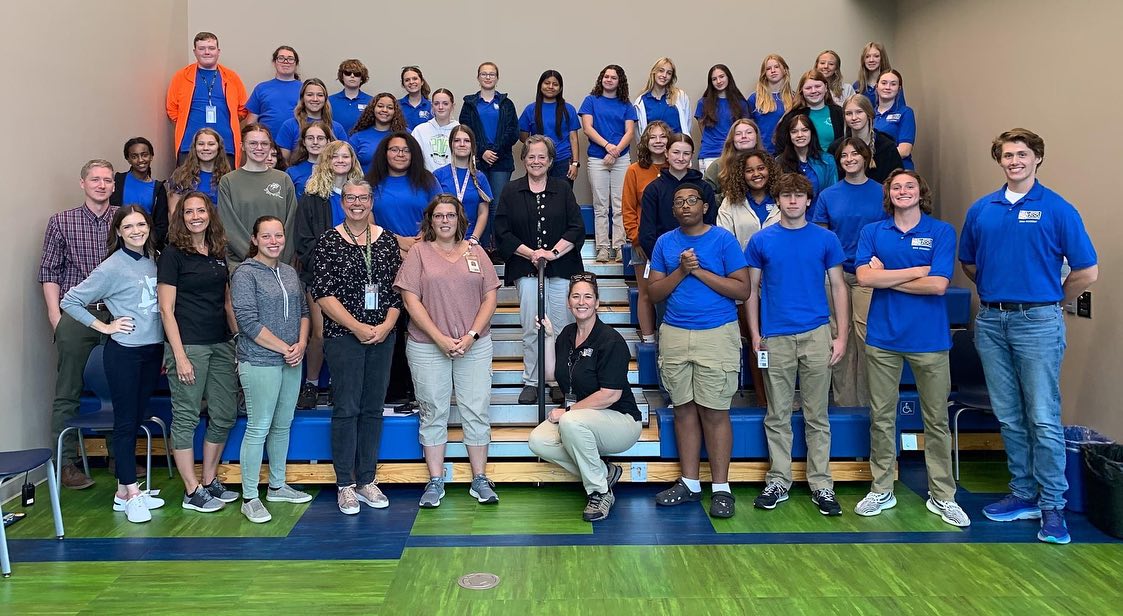One Day or Day One? Dr. Patricia Parker Inspires Zoo Academy Students to Make a Lasting Change for Conservation
Summary:
– Dr. Patricia Parker is an evolutionary biologist specializing in studying animal societies, particularly avian populations.
– Her groundbreaking research using genetic and molecular approaches has shed light on bird populations’ spatial structure and social organization.
– Dr. Parker’s work on disease transmission in birds has played a crucial role in protecting endangered avian species in the Galápagos Islands.
– Her visit to the Zoo Academy motivated students to put their studies into action and make a difference in wildlife conservation.
– Here, we delve into the fascinating aspects of Dr. Parker’s research and the importance of taking that first step toward making a lasting change for conservation.
Welcome, fellow conservation enthusiasts! Today, we embark on an awe-inspiring journey into the world of wildlife research and its profound impact on preserving Earth’s delicate ecosystems. Join us as we unravel the incredible work of renowned evolutionary biologist Dr. Patricia Parker and delve into her quest to safeguard the unique bird species of the Galápagos Islands.
Dr. Parker’s research has revolutionized our understanding of animal societies, particularly through her pioneering use of genetic and molecular approaches. By focusing on avian populations, she has uncovered the hidden secrets and intricate social structures within bird communities, taking us closer to unraveling nature’s mysteries.
One of her most captivating studies revolves around the Galápagos hawk, the sole resident hawk species on these remarkable islands. Through in-depth analysis of their DNA, Dr. Parker has uncovered these magnificent birds’ spatial structure and social organization, painting a vivid picture of their lives in the wild. But her work doesn’t stop there; she has also shed light on transmitting malaria parasites and other disease agents within the Galápagos Islands, unearthing the origins of non-native, invasive pathogens.
This groundbreaking research provides invaluable insights into the lives of the Galápagos hawk and other avian species and plays a pivotal role in their conservation. By identifying their threats and understanding their susceptibility to diseases, Dr. Parker’s work helps inform strategies to protect endangered bird populations within the Galápagos National Park.
But what makes Dr. Parker truly awe-inspiring is her determination to translate her research into practice. During her visit to the Zoo Academy, she shared her experiences and discussed the importance of taking action in conservation. Her words resonated deeply with the students, inspiring them to channel their knowledge and passion into meaningful contributions. She eloquently said, “Every day is an opportunity to make a difference. It’s about taking that first step, embracing day one as a chance to initiate change.”
Dr. Parker’s pioneering work on disease transmission and protection mechanisms in birds has captivated the imagination of researchers and conservationists alike. By studying how birds defend themselves from diseases, she uncovers crucial insights into their immune systems and explores innovative strategies to safeguard their existence. Her research opens new doors toward preventing the threats that can decimate avian populations and emphasizes the urgent need to bridge the gap between scientific discoveries and practical conservation efforts.
One of the most fascinating aspects of Dr. Parker’s research lies in understanding how birds achieve protection from diseases, especially within the unique context of the Galápagos Islands. The isolated nature of these islands has allowed for the evolution of diverse bird species, making them ideal subjects for studying disease transmission patterns and host defenses. Dr. Parker offers us a glimpse into the complex interplay that shapes species’ survival by unraveling the intricate dance between birds, parasites, and the environment.
Through her compelling work, Dr. Parker champions the power of interdisciplinary collaboration. She has paved the way for a holistic approach to understanding and protecting wildlife by bridging the gaps between genetics, ecology, and conservation. Her research highlights the astounding adaptations birds employ to survive in challenging environments and underscores the interconnectedness of all organisms in our fragile planet.
As we reflect upon the incredible journey of Dr. Patricia Parker and her inspiring visit to the Zoo Academy, let us embrace her message of taking action. Regardless of our backgrounds, each of us possesses the power to make a lasting change for conservation. Remember, a thousand-mile journey begins with a single step, and every day can be day one.
Let us be fueled by Dr. Parker’s passion, armed with her insights, and empowered by the knowledge that we, too, can contribute to protecting wildlife and preserving our planet. Today is the day we choose to make a difference. Let us embark on this mission together, hand in hand, as we strive to secure a brighter future for all living creatures that call this Earth home.
With boundless curiosity and unwavering determination, we can shape the destiny of our planet, ensuring that future generations can witness the beauty and diversity of wildlife that captivates and inspires our souls. Remember, the choice is yours: one day or day one?
*****
Source Description
One day or day one? Dr. Patricia Parker left our Zoo Academy students inspired last week with a compelling conversation about putting her research into practice and making a lasting change for conservation.
Dr. Parker is an evolutionary biologist who uses genetic and other molecular approaches to study animal societies in nature, largely with avian populations such as the Galápagos hawk, the only resident hawk species on the islands.
She has been recognized as a leader in applying DNA analysis to understand bird populations’ spatial structure and social organization. Her work on transmission of malaria parasites and other disease agents in the Galápagos Islands has helped identify the origins of non-native, invasive pathogens and informed efforts to protect endangered populations of birds in Galápagos National Park.
Her current research focuses on disease transmission in birds, their susceptibility, and how they achieve protection from such diseases, especially in the conservation of birds in the Galápagos Islands.


